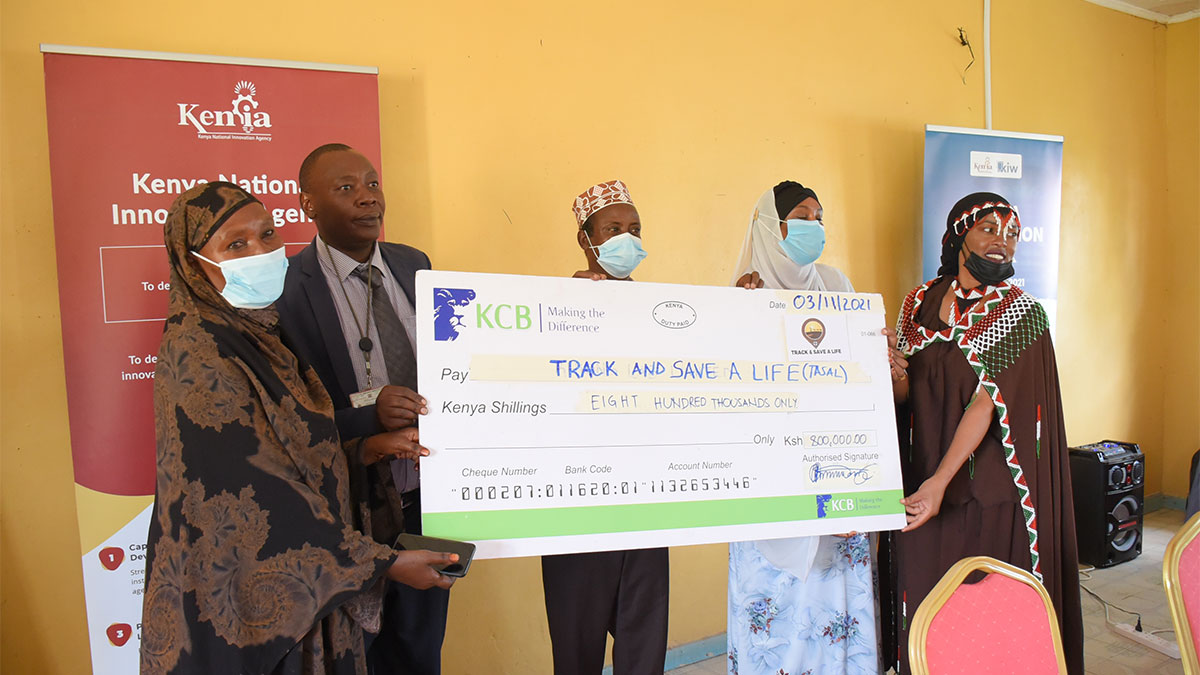In the northern part of Kenya lies one of the largest Counties, Marsabit County. Inhabited by 80% pastoralists, Marsabit is among the 10 counties in Kenya with the highest maternal mortality rates.
Influenced by the adverse effects of climate change, pastoralist communities are constantly on the move with their livestock in search of pasture and water. Due to this nomadic lifestyle, expectant women are unable to access healthcare services and are more likely to die from pregnancy and childbirth complications due to lack of suitable healthcare infrastructure .
In 2015, maternal mortality rate in Kenya stood at 488/100,000. Surprisingly, in Marsabit County it was 820/100,000 which is 2 times the National average, 4 times the Global estimate and 8 times the United Nations (UN) Sustainable Development Goals (SDGs) targets.
Dahabo Adi Galgallo, an epidemiologist working with the Ministry of Health Marsabit County as County Epidemiologist has however come up with an innovation to help combat maternal deaths.
Though Track and Save a Life (TASAL), a Community Based Organization she founded in Moyale Sub County, she works with expectant mothers by fitting them with electronic bracelets to help track them. A GPS device is fitted into a culturally accepted embroidered bead bracelet that relays the wearer’s position to health workers via a web or android-based application. This enables healthcare workers to pinpoint the wearer, whether or not she is within cellular network coverage hence helping provide Antenatal Care (ANC).
ANC for pregnant pastoralist women is important as it enables clinicians to detect medical obstetric problems early, allowing intervention before the condition progresses further with detrimental effects on maternal and infant morbidity and mortality.
After giving birth, the Health workers continue following the pastoralist mothers who continue to wear their bracelets in order to immunise their babies in their first year.
In spite of the tremendous milestone, Galgallo says the GPS system needs to be advanced further by introducing a feedback and contact mechanisms between the pastoralist women and healthcare providers in case of emergencies.
The innovation won the 2020/2021 National Innovation Award (NIA) run by the Kenya National Innovation Agency (KeNIA) and got monetary support of Ksh. 800,000.
While speaking during the issuance of the NIA cheque in Moyale on November 3, 2021, Marsabit County first lady Alamitu Guyo lauded the innovation but challenged Ms. Galgallo to think on how to improve the innovation further.
Ms. Guyo however stated that the County is proud of the innovation and will continue to support it.
As Kenya works towards achieving it's big four agenda, Vision 2030, UN Sustainable Development Goals, and African Union Agenda 2063, there is an overwhelming need to roll out the innovation in all the other pastoralist Counties in Kenya to help combat maternal deaths.
